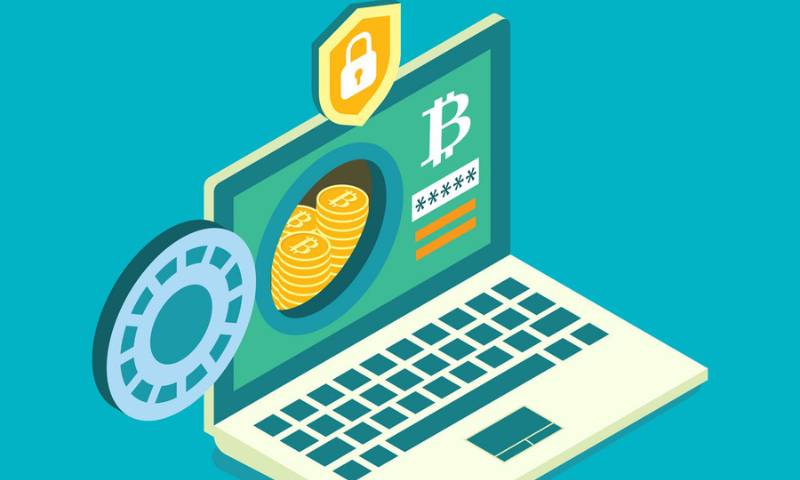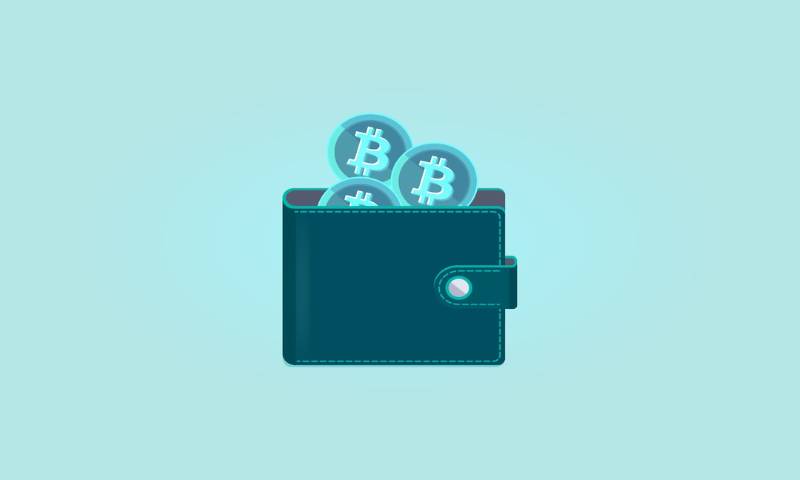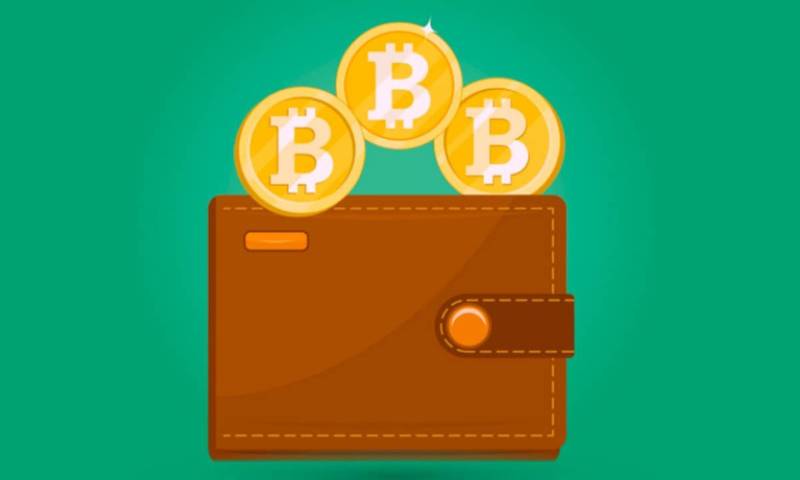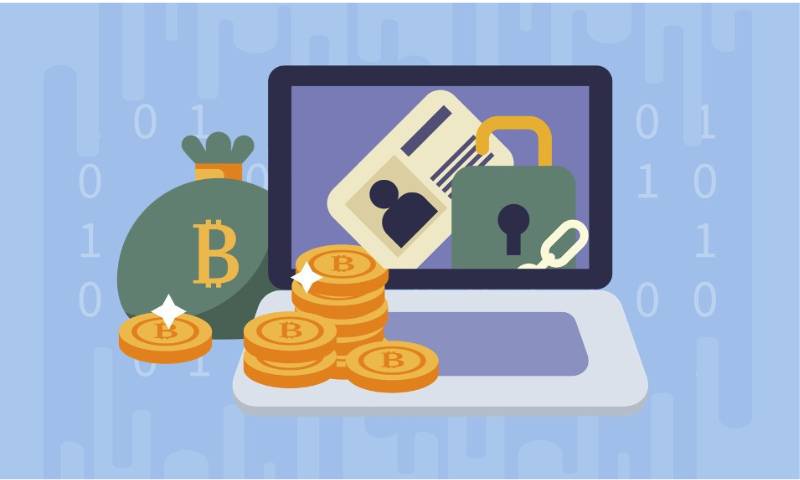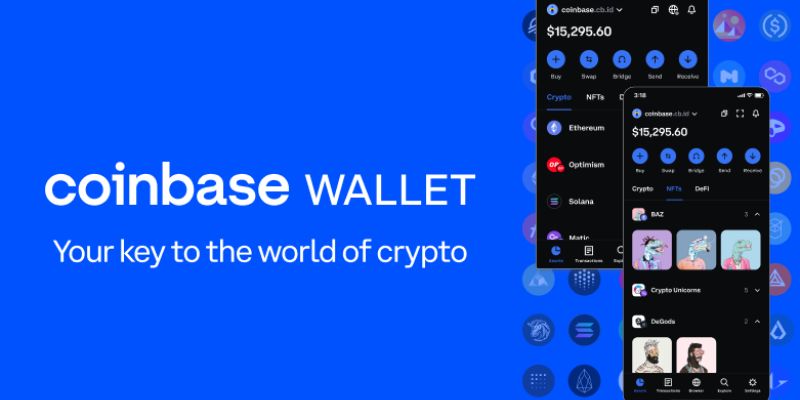Picture this: you’ve just plunged into the digital sea of cryptocurrencies. You know you need a safe place to store your virtual coins. Forget clunky safety deposit boxes or sock drawers; a desktop crypto wallet is your new best friend for threading the needle between accessibility and security. In this guide, I’ll take you through everything from hardware muscle to software smarts, so you’re all set to make a solid choice. We’ll dive into the nitty-gritty details of what makes a desktop wallet tick, how to choose the right one, and the crucial steps to lock down your digital treasure like a pro. Ready to become a savvy crypto custodian? Let’s unveil the secrets of desktop wallets, and make sure your digital dollars are defended!
Understanding Desktop Wallet Fundamentals
Hardware vs Software Wallets
Let’s dive into the world of keeping your digital dough safe. First off, we’ve got two main types of wallets: hardware and software. Think of hardware wallets like a safe. They are real, touchable devices that store your crypto offline. Software wallets, on the other hand, are apps on your computer or phone. They are always connected to the internet.
Now, which should you use? Well, it really depends on how you plan to use your crypto. If you’re all about security and don’t need to move your crypto often, hardware wallets are your best bet. They keep your coins away from online threats. But, if you need to access and use your crypto often, software wallets make more sense.
Here’s the deal with hardware wallets: they are super safe because they keep your crypto offline. This means hackers can’t reach them through the internet. Hardware wallets ask you to confirm transactions physically on the device. That’s a big plus for security. But, they can be pricey and are not as quick to access as software wallets.
On the flip side, software wallets are free and easy to use. They are great for daily dealings but not as secure as their hardware cousins. See, they are online, making them more open to hacks. Yet, good software wallets have tight security features to protect your coins.
Cold Storage Solutions
Now let’s talk about keeping your coins extra chilly with cold storage. Cold storage is all about keeping your crypto offline, away from any internet baddie who wants to snatch it. Think of it like burying your treasure. It’s there when you need it, but no map leads the way for the pillagers.
Cold storage comes in a few forms. Paper wallets are one. You print your wallet info on paper. It’s simple, but not the best since paper can get lost or damaged. Hardware wallets are the top choice for cold storage. They keep your coins safe until you decide to plug in and make a move.
Using cold storage has its perks. It’s safe from online threats—since it’s offline, hackers can’t touch it. This is why people who hold onto their crypto for a long time love it. But remember, it’s not so handy for trading or buying things. It works best for saving, not spending.
When you pick a cold storage method, think about how often you’ll need your crypto. And always, always keep a backup. If you lose access to your cold storage, you might lose your crypto forever. So, choose wisely and keep your backup somewhere super safe.
To sum it up, hardware wallets win for security but cost more. Software wallets are handy and free but less secure. Cold storage keeps your crypto safe and sound off the grid but isn’t great for quick access. Your choice should match how you use your crypto. Stay smart, stay secure, and happy holding!
Assessing Top Desktop Wallets for Cryptocurrency Management
Atomic Wallet Overview
Let’s talk about Atomic Wallet, a top player on the field. Atomic serves as a secure, all-in-one desktop wallet for cryptocurrency, allowing you to keep, exchange, and buy crypto. It’s designed to be user-friendly, making it a go-to for newbies and pros. Instantly, Atomic Wallet shines for managing over 300 coins and tokens, a true multi-currency vault.
This wallet is more than a safe spot for your digital cash. It also features built-in exchanges. So, you can swap tokens without leaving the app. That means less hassle when you want to trade. Atomic Wallet stands apart with its robust security. It uses powerful encryption methods to guard your stash. Remember, trust is vital, and Atomic Wallet earns it with top-notch safety.
Now, setting up Atomic Wallet is a breeze. You can get it running on Windows, Mac, or Linux. It’s about choices and ease, ensuring you’re not tied to one operating system. Plus, Atomic doesn’t keep your data hostage. You’re always in control, thanks to its decentralized nature.
With Atomic Wallet, your keys stay with you. You get a critical 12-word seed phrase when setting up. Write it down and keep it safe because it’s your emergency key. Lose it, and you might say goodbye to your coins.
Atomic Wallet’s main draw is its independence. It doesn’t rely on a central server, which means you’re not stuck if the company’s server goes down. You’ve got power over your crypto.
Exodus Crypto Wallet Features
Moving on to Exodus, a wallet that gets rave reviews. Exodus is admired for its sleek desktop wallet interface that’s easy on the eyes and simple to use. It’s designed to make managing your crypto enjoyable. You can track your portfolio, trade coins, and even hop into apps right from your wallet.
Exodus is a hot wallet, always online and ready for action. You can sync your assets across devices, joining desktop and mobile worlds. This keeps you connected, ready to trade or pay on the go. The team behind Exodus releases updates often, which means your wallet’s security stands strong against online threats.
One of Exodus’s standout features is its support for more than 100 crypto assets. It’s a multi-currency desktop wallet that welcomes Bitcoin, Ethereum, and many more. Like a Swiss army knife, it’s equipped for different crypto jobs. Exodus also boasts a partnership with Trezor. This means you can link it with a hardware wallet for an extra security layer.
Setting up Exodus on your Windows, Mac, or Linux is a walk in the park. It’s built to be intuitive. You’ll set it up fast and back it up just as swiftly. Your backup is a 12-word seed phrase, the key to your assets. Ink it on paper, stash it in a secure spot, and you’ll rest easier.
In the race of best desktop wallets, Exodus stands out for ease, design, and security. It pairs with hardware wallets and ensures you’re in control. Should the need to restore arise, your 12-word lifeline is the ticket back to your funds.
When choosing between desktop wallets, it’s all about your needs. Want loads of features and coins? Go Atomic. After style and simplicity? Exodus might be your match. Remember, the best desktop wallet is the one that fits your crypto life perfectly.
Setting Up and Securing Your Desktop Wallet
Desktop Wallet Backup and Recovery
When you first get a desktop wallet for cryptocurrency, think of it like a bank. You wouldn’t keep money in a bank without knowing how to get it out, right? Backup and recovery are key parts to keep your coins safe. Let’s say your computer dies, or a virus hits hard. Without backups, you might lose your cryptos forever. So, how do you back it up? It’s simple! Most good wallets will guide you through this.
Say you have the best desktop wallets like Atomic Wallet, Exodus, or Electrum. They ask you to write down a recovery phrase when you create your wallet. This is a list of words you keep somewhere safe—not online. If your computer breaks, you use these words to get your money back. Remember, anyone who finds this phrase can take your coins. So keep it as safe as your grandma’s secret cookie recipe!
Wallet Seed Phrase and Private Keys Security
What’s a wallet seed phrase? It’s a super-secret code that can unlock your coins. Think of it like a magical spell that opens a treasure chest. You must keep it safe. Write it down and hide it well. Don’t take a picture or save it on your computer or phone. If bad guys find it, they can steal your cryptos.
Now, let’s chat about private keys. These are like the keys to your car. If someone else gets them, they can drive away with your ride—or in this case, your digital money. So, you keep these keys safe too. Never share them online or with strangers. Only you should have them.
Protecting these keys and phrases is a must. Putting them in a safe or a locked drawer is a good idea. Some folks even use cold storage solutions. This means keeping them offline, away from hackers.
Sometimes, you’ll see people talk about hardware vs software wallets. Think of hardware wallets like a safe deposit box. It’s a separate device, and it’s really tough for thieves to crack. It keeps your coins offline mostly, so it’s safer than a software wallet on your computer. For security, a hardware wallet wins, but a good multi-currency desktop wallet offers convenience and easy access.
When you set up your wallet, whether it’s on Windows, Mac, or Linux, follow all the steps. They’ll help you keep things secure. Desktop vs mobile wallets? Desktop wallets often feel easier to secure since phones can get lost or stolen easier.
And when it’s time for updates, do them! Just like a game, updates fix bugs and keep your wallet tough against hackers. What about fees? Some wallets are free, but moving cryptos can cost a little. Check the fees so you’re not surprised. Remember, a hot wallet means it’s connected to the internet and easier to use, but not as safe as cold storage.
Choosing the right wallet is essential. User-friendly ones with built-in exchanges are handy. They let you trade coins within the wallet. Your desktop wallet can keep your Bitcoin, Ethereum, and other cryptos secure and ready whenever you need them. So take your time, choose well, and always double-check security steps. Your future self will thank you for being so smart with your digital coins!
Advanced Desktop Wallet Functionality and Comparisons
Decentralized Desktop Wallets and Multisignature Support
When it comes to desktop wallets for cryptocurrency, there’s a lot to consider. A key feature you want is decentralization. This means no single point of control. Your money, your rules, you know? Decentralized desktop wallets allow you to fully control your crypto. No middle man to block or oversee your transactions.
Now, let’s talk multisignature support, or multisig for short. Think of it as a shared wallet. It needs more than one key to open it. This spreads risk and adds security. If you go this route, all parties must agree to send funds. Goodbye to the worry of one person losing the key or going rogue. More eyes, more security; multisig makes sure of that.
Cryptocurrency Desktop Wallet Comparison
Choosing the best desktop wallets is like picking the right tool for a job. Not easy, but I’ve got the details to help you decide. Let’s size up three favorites: Atomic Wallet, Exodus, and Electrum.
Atomic Wallet is a solid multi-currency desktop wallet. It lets you hold many types of coins. It’s known for its ease and security features. And yes, it’s got a good track record. People love it for the mixed coins it holds. Atomic Wallet also has built-in swaps. That means you can trade coins without leaving the wallet.
Next is Exodus. Style and ease shout loud here with its stellar design and interface. Great for beginners for sure. But don’t let the sleek design fool you. It’s a serious tool. Exodus supports many coins and offers a mobile version too. What’s not to like about that?
Electrum is the choice for Bitcoin fans. Fast and light, it’s perfect for storing Bitcoin on a desktop wallet. It’s been around since 2011, so it’s trustworthy. Electrum’s strong suit? It’s really focused on Bitcoin security and features.
When we talk hardware vs software wallets, think of these as extras to keep your digital currency even safer. Hardware is like a vault. Keep your coins offline, as in cold storage solutions. Software wallets, though, are ready at your click. They’re hot wallets and easy to use.
Setting up a desktop wallet is not wizardry. It’s pretty simple whether you’re on Windows, Mac, or Linux. Step-by-step guides help you through. Just follow and you’re golden.
Backup and recovery can’t be overlooked. Losing your access means losing your crypto. Always keep your wallet seed phrase and private keys safe. Write them down. Store them in a lockbox. Just don’t forget where!
When comparing, consider wallet encryption methods and security features. Open-source desktop wallets score points here. Everyone can check their code for nasties. They keep your currency safe from prying eyes.
As for the best desktop wallets, it’s about what fits you. It’s a mix of function, form, and feel. It’s more than just managing Ethereum in a desktop wallet or any other coin. It’s about peace of mind.
So decide on your must-haves and nice-to-haves. Remember, it’s your crypto journey, and the right wallet can make all the difference.
In this post, we dove into desktop wallets, comparing hardware and software options and exploring cold storage solutions. We looked at top wallets, like Atomic and Exodus, and covered key setup and security measures, focusing on backup, recovery, and protecting your seed phrase and private keys. Finally, we delved into advanced features such as decentralized options and multisignature support and compared different cryptocurrency desktop wallets.
Here’s my take: managing crypto needs a solid, secure wallet – it’s critical for your peace of mind. Desktop wallets offer control and security if used right. I recommend you review features, prioritize security, and pick a wallet that aligns with your needs. Remember, the wallet you choose is as important as the funds it protects. Stay safe and smart in the crypto world!
Q&A :
What is a desktop crypto wallet and how does it work?
A desktop crypto wallet is a software application that is installed on a personal computer to store, send, and receive various cryptocurrencies. It works by creating private keys that you use to access your cryptocurrencies and initiate transactions. These wallets are generally considered more secure than web wallets because they don’t rely on third-party services and are less susceptible to online hacking attacks.
How do I choose the best desktop crypto wallet for my needs?
When choosing the best desktop crypto wallet for your needs, consider factors such as the types of cryptocurrencies it supports, security features (e.g., two-factor authentication), ease of use, backup & recovery options, and compatibility with different operating systems. You should also read reviews and testimonials from other users and possibly test out a few wallets to find the one you’re most comfortable with.
Are desktop crypto wallets safe?
Desktop crypto wallets are generally safe, as they allow the user to maintain control over their private keys and are less vulnerable to online hacking than web-based wallets. However, they can still be susceptible to local threats such as malware, phishing attacks, and physical theft. Ensuring the safety of a desktop wallet involves keeping the computer secure, using antivirus software, and regularly backing up the wallet.
Can I use a desktop crypto wallet on multiple computers?
Using a desktop crypto wallet on multiple computers is possible, but it requires careful management. You can backup your wallet and restore it on another computer. However, always make sure to secure your private keys and consider using hardware wallets in conjunction for added security when accessing your wallet on different devices.
Does a desktop crypto wallet support all cryptocurrencies?
Not all desktop crypto wallets support every cryptocurrency. Many wallets are designed to support a range of popular cryptocurrencies, but there are also wallets tailored to specific coins or those that only support a single cryptocurrency. It’s essential to ensure that the wallet you choose is compatible with the digital assets you intend to store and manage.

